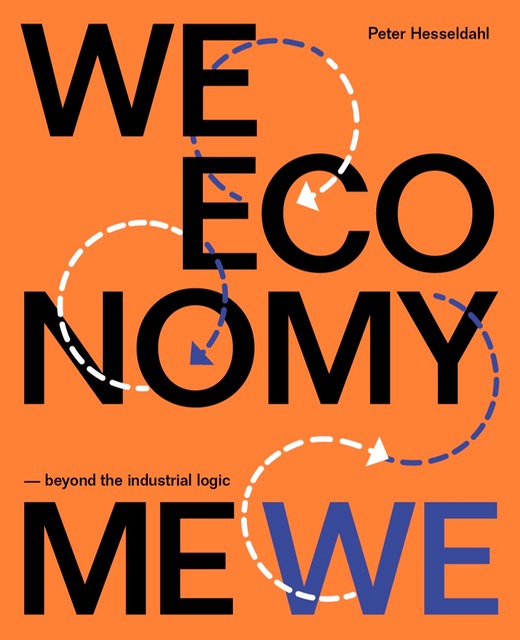What should we call those small contributions of value, which we exchange online or through the sharing economy? Peanuts.

Platforms are opening the economy to a longer tail of providers. A lot more people can participate occasionally or add value in small contributions. They might supplement their income by renting out their car, tutoring a school kid for exams, selling handicrafts on Etsy or blogging on YouTube.
The many tiny and sometimes rather obscure contributions that can now become part of the value creation are a bit like plankton, the microscopic organisms at the bottom of the food chain in the oceans.
There’s lots of plankton in the oceans, but for most of us, it’s not worth the while to harvest it. We go for the bigger fish. Now, with the ability of platforms to coordinate, we can both find and make use of the plankton of the economy. Thus, a whole new layer of resources can be mobilized.
Often these small resources would otherwise have stayed idle and unused, but online coordination mobilized them to become productive, as a new factor in the economy.
The open source software movement is an inspiring example: Very sophisticated and powerful results can emerge when thousands of contributors coordinate their effort around peer-to-peer projects like Wikipedia, Linux or Arduino.
Peanuts — a small unit of value
There’s no commonly used term for these small units of value. Personally, I tend to think of them as ”peanuts” — but I realize the term may not make much sense in a rigorous academic context.
Rather than getting hung up on the name, however, let’s me try to describe what I mean by ”peanuts”.
- Peanuts are exchanged through platforms that can track, search and match them at a very fine granularity. Platforms like Blablacar, Airbnb and Taskrabbit allow amateurs to offer small, very specific resources like an available seat in a car going from Lyon to Marseille next Thursday afternoon.
- Peanuts are small. Often, they are minuscule: A ”like”, a quick rating, an edit in Wikipedia, a shared photo, a tweet or a posting on Facebook… they can even be data that is automatically collected about the behavior and preferences of users to improve a service. Indeed, you might think of these very small units as plankton, rather than peanuts.
- You need to process a lot of peanuts to make real money. Each peanuts is worth very little in monetary terms, but platforms can process very large numbers of them, and in aggregate this can become quite substantial. Each song played on Spotify or Youtube pays a fraction of a cent to the creator, but the platforms play billions of them.
- Peanuts are typically in-formal. They don’t necessarily adhere to the regulations, taxation, or copyright issues that regular, professional contributions to the economy do.
- Peanuts are typically free or much cheaper than professional contributions. Yet, they can be of high quality and value to users.
- Peanuts are not (just) exchanged for money. Interestingly, the further into the local and private sphere and the further out into the long tail the resources are drawn from, the more participants will also be motivated by other factors than money. They may share because it improves their reputation and status, because they enjoy socializing, in order to learn, or they may be driven by ideology or the pleasure in helping others.
The sharing economy can be a cheaper way of solving everyday problems. It’s a more efficient use of resource, if we lend a piece of machinery that we rarely need from a neighbor, or exchange clothes or toys, rather than buying new. But sharing has social rewards as well. It offers a chance to meet another person and to experience that you can be of use to each other. It builds cohesion and social capital. It requires trust, and it builds further trust. It’s an economy that’s not (just) about money.
- There’s not a clear line that separates peanuts from professional contributions. You could think of the small tasks that are done on gig-platforms like Taskrabbit, Mechanical Turk or Upwork as peanuts — even though they are clearly done to make money. Also, some products that are entirely professional get exchanged as peanuts, most notably in the media, where articles, videos and music circulate for free or are streamed in tiny units. Lots of blogging is done for free by highly skilled professionals on sites like Medium of Huffington Post.
Experts need not be professionals. At the long end of the tail, you can find types of expertise and creativity that may be completely obscure and irrelevant for most, but extremely valuable in just the right context.
Peanuts are:
- Small
- In the long tail
- Created by empowered amateurs
- Not made just for money
- Shared
- Exchanged through platforms
- Unregulated — informal
- Cheaper than professional contributions
- Often belonging to the public domain, free to use and change
